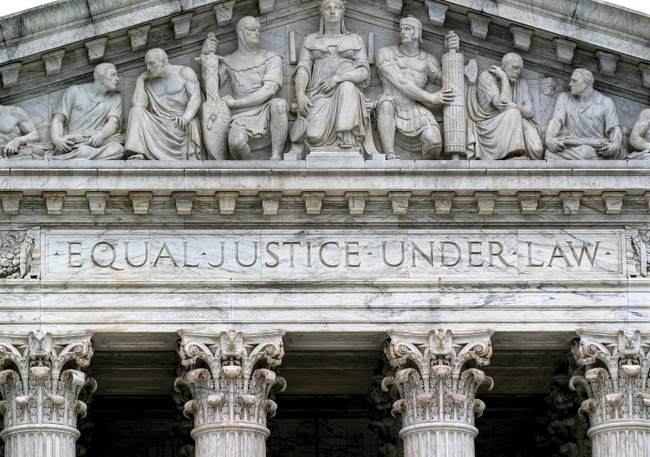


On Friday, the Supreme Court handed down its decision in Free Speech Coalition vs. Paxton, a case that has some wide-ranging implications for free speech, the First Amendment, and the limits of each. The Supreme Court has upheld an earlier decision by the Fifth Circuit, affirming the Texas statute, in a 6-3 ruling, with Justices Kagan, Sotomayor, and Jackson dissenting.
The heart of the Court's decision, penned by Justice Clarence Thomas, reads:
The power to require age verification is within a State’s authority to prevent children from accessing sexually explicit content. H. B. 1181 is a constitutionally permissible exercise of that authority.
This decision, then, upholds Texas's law requiring an age verification for viewers of "adult" content.
The dissent, written by Justice Kagan, reads in part:
The Texas statute before us (H. B. 1181) addresses speech understood in First Amendment law as “obscene for minors.” That label means the First Amendment does not protect the speech for minors. The State can restrict their access without fear of colliding with the Constitution. The trouble comes in the last two sentences’ italics. Speech that is obscene for minors is often not so for adults. For them, the category of obscene—and therefore unprotected speech—is narrower. See ante, at 8–10. So adults have a constitutional right to view the very same speech that a State may prohibit for children. And it is a fact of life—and also of law—that adults and children do not live in hermetically sealed boxes. In preventing children from gaining access to “obscene for children” speech, States sometimes take measures impeding adults from viewing it too—even though, for adults, it is constitutionally protected
This would appear to conclude that, because minors may find a workaround, or may be permitted by parents to view the content described, the law is somehow proscribed; that seems a bit of a stretch.
At the heart of this case is a Texas law passed by the legislature in 2023. The law, House Bill 1181, put in place a requirement for online pornography sites with more than a third of their content "harmful to minors" to verify the age of all users. The Free Speech Coalition, which represents the pornography and adult entertainment industry, challenged the law. A district court struck the age-verification requirement down, but the Fifth Circuit Court of Appeals reversed that decision, upholding the age verification. The original court had applied strict scrutiny, but the Fifth Circuit used a lower standard, called a rational basis review. The Fifth Circuit's decision stated in part:
There is an ongoing threat to the public—specifically Texas children and adolescents—by AYLO GLOBAL ENTERTAINMENT, INC.’S and AYLO USA, INCORPORATED’S continuing violation of Civil Practice and Remedies Code Chapter 129B. Consequently, as authorized by statute, the State of Texas, by and through Ken Paxton, the Attorney General of Texas, files this Original Petition and Application for Permanent Injunction asking the Court to order AYLO GLOBAL ENTERTAINMENT, INC. and AYLO USA, INCORPORATED to comply with Texas law and to impose civil penalties of up to $10,000 a day since September 19, 2023.
The Supreme Court then declined to block the Fifth Circuit's upholding of the law pending appeal, and then granted certiorari to examine the constitutional aspects of the case.
See Also: What's Left at SCOTUS? A Rundown of the Decisions We Can Expect on Friday
It would seem obvious that children are treated differently under the law than adults. Children are, after all, not in possession of the life experience, education, and judgment of adults, and therefore are not allowed to make decisions or do things that adults are allowed to do, in some cases, even where constitutional rights are concerned. The Second Amendment does not apply to minors in most instances, and while there is an argument to be made that the First Amendment protects "adult entertainment," apparently, the Supreme Court has decided that this protection does not extend completely to minors.
Editor's Note: Unelected federal judges are hijacking President Trump's agenda and insulting the will of the people.
Help us expose out-of-control judges dead set on halting President Trump's mandate for change. Join RedState VIP and use promo code FIGHT to get 60% off your membership.
